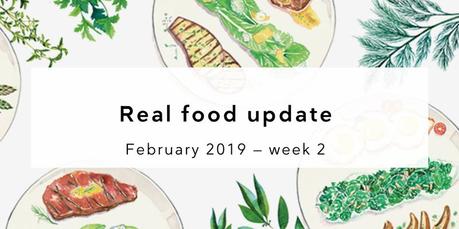
This week, we summarize the top five news articles and studies in the low-carb realm, plus the wall of shame.
- Women with a diagnosis of polycystic ovary syndrome (PCOS) should definitely be on the lookout for type 2 diabetes. The American Diabetes Association publishes a new study in its journal Diabetes Care that finds normal weight women with PCOS have a 3.2X chance of developing type 2 diabetes. For overweight and obese women with PCOS, risk is 4.7X and 8.8X, respectively. Research shows that a low-carb diet can often reverse both PCOS and type 2 diabetes.
- MedPage Today reports on a new study, published in JAMA Network Open that demonstrates huge individual variability in (non-diabetic) blood sugar responses to the same foods. For example, "a standard meal consisting of a bagel and cream cheese, glycemic excursions ranged from just 6 mg/dL up to 94 mg/dL." This informs the question of why some people may do well on a low-fat diet and others may struggle. In addition, it speaks to the power of continuous glucose monitors (CGMs) to inform individuals about their personal tolerance for specific foods.
- ABC News reports on a new analysis in the journal The Lancet that reveals that six cancers linked to obesity (colorectal, endometrial, gallbladder, pancreatic, kidney, and multiple myeloma) are "increasing in a stepwise manner in successively younger birth cohorts in the USA." Translation: researchers are seeing a younger and younger onset of these obesity-related cancers in successive generations.
- A new meta-analysis of randomized, controlled trials published in the journal BMJ confirms that eating breakfast does not contribute to weight loss. Vox takes it further, with an interesting piece on the influence of cereal-makers on perpetuating the myth of breakfast as the most important meal of the day. Plus, it reminds us that "breakfast" in America is often just repackaged dessert.
- Science (the magazine) publishes a technical perspective piece about the mechanics of gut-brain signaling and how processed food can compromise this system. It concludes: "Evidence is ammassing that the nutritional content of processed foods is not accurately conveyed to the brain. This raises the possibility that how foods are prepared and processed... could promote overeating and metabolic dysfunction." In addition, JAMA Internal Medicine published an observational study of middle-age adults that links higher amounts of ultra-processed food to higher mortality rates. Note that this is very weak evidence, but the effect did show a 14% increase in mortality for each 10% increment of ultra-processed food (as a percentage of total food by weight).
Wall of shame
- "Drinkable" potato chips. 😧 Yes. A slurry of pre-mashed chips for easy, one-handed, no-greasy-fingers consumption. We could not make this up if we tried. Available in Japan for now, but who knows?
- Incoming: Orange Vanilla Coke. The first new flavor in over a decade. It's intended to remind you of creamsicles. A little depressing... Big Soda will never give up.
- Nestlé launches new "Deskfast." Get it? Desk + Breakfast = cereal + milk + spoon. A product designed for those who want to eat a quick breakfast at their desks but have not yet figured out that three hard-boiled eggs would be both cheaper and better for concentration and banishing hunger.
- New "Bundlz" snack for kids, presented as a "better for you " option. Encapsulates much of what is wrong with our mainstream conception of what "healthy food" needs to be.
- Cheetos have found their way into a KFC sandwich. This mash-up promises to deliver that "extra crunch" that most people achieve with iceberg.
- The New York Times' long-time food columnist makes weight loss sound easy. Three healthy, well-balanced, portion-controlled meals each day and daily weighing. It works for her and she seems to believe it will work for everyone disciplined enough to follow her regimen. A lot of assumptions, there.
- Depressing but true: "86% of food ad spending on TV programs where African-American consumers are a majority of the audience was for fast food, candy, sugary drinks and unhealthy snacks."
Want more?
Did fat - scavenged from the bone marrow of prey killed by other animals - provide the nutrients for early humans' survival and was it a key ingredient in our evolution into modern humans? In the future, will those with diabetes be able to ditch the needles and swallow their insulin? If keto must be considered a "fad diet," can we celebrate that it tops the list and is tagged as actually achieving promised results? Are you excited about the new butter emoji?
Tune in next week!
About
This news gathering is from our collaborator Jennifer Calihan, who also blogs at Eat the Butter. Feel free to check out the keto meal-idea-generator on her site.

